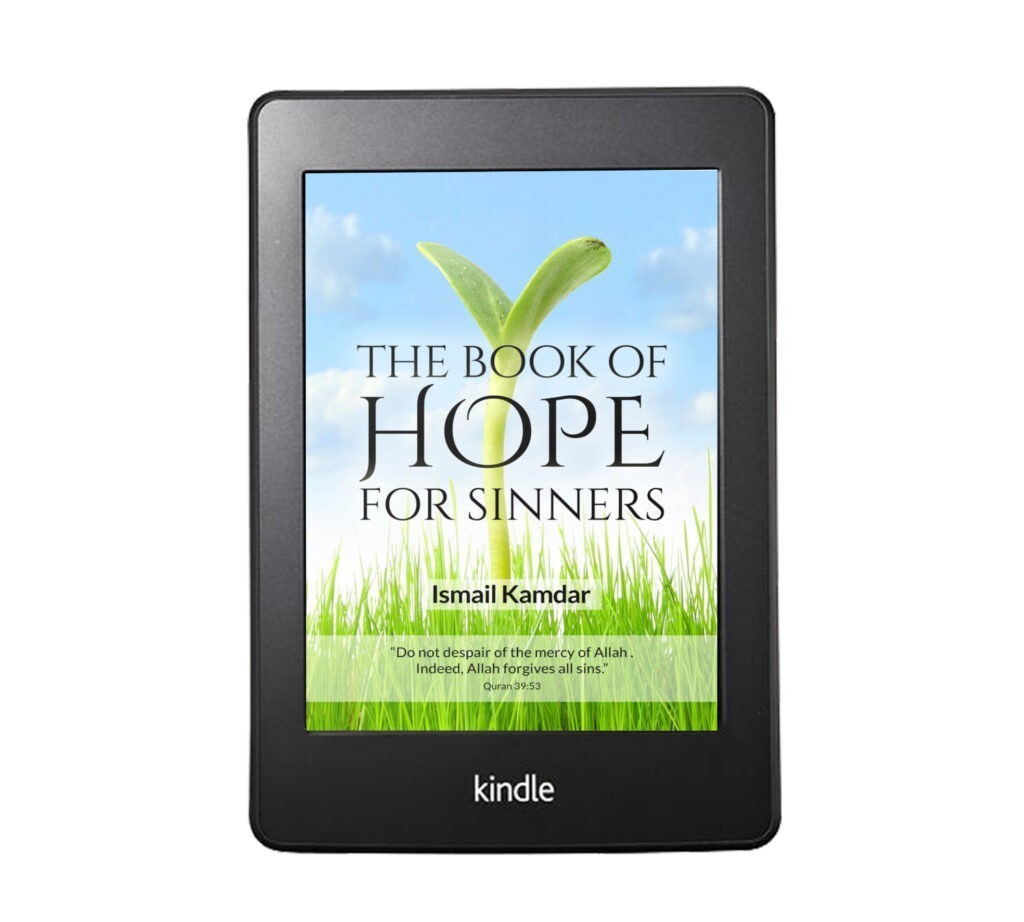Some people are able to get more done in the morning. Others are able to get more done in the afternoon. And some people are only productive late at night. This is known as one’s Peak Performance time.
How Social Media is ruining Dawah
Exhibit A:
Shaykh posts on social media a list of rights of wives. He gets thousands of likes, comments praising him, and shares.
He then posts an equally valid and similar sized list of rights of husband. He received hundreds of angry comments, accusations of being a misogynist and calls for him to be fired. Quietly, he deleted the posts and never discusses the topic again.
Exhibit B:
A Muslim activist discusses how racism is prohibited in Islam. She posts various verses of the Quran, hadiths, and quotes from scholars to prove her point. She is praised for serving the Deen and advocating human rights.
She then posts a similarly valid discussion about how homosexual practices are prohibited in Islam.
She posts various verses of the Quran, hadiths, and quotes from scholars to prove her point. She is accused of being an extremist and homophobe, with threats to get her fired from her job. She deletes the post. A few weeks later, she is seen at a rally supporting LGBT rights.
Exhibit C:
An elderly scholar has spent his entire life studying and teaching Islam. He is boycotted on social media for being too old fashioned, out of touch and conservative. He is unable to reach the youth because people keep sharing lies and slanders about him. Quietly, he fades away and nobody notices.
A hip young guy starts making funny YouTube videos and snarky tweets. He gains a large following on social media. After a while, he starts posting his own opinions on various Fiqh issues. He has no Islamic qualifications, but his fans don’t care. They take his views as Gospel and follow it as if it is the Quran itself. He becomes the next big thing in social media.
So what’s going on?
Simply put, Muslims have embraced several unIslamic practices as the norm on social media. These include cyber-bullying, backbiting, slander, threatening to get people fired from their jobs, and a mob mentality.
The result is a very hostile environment to do Dawah in. Slowly, over the past few years I have seen more and more scholars quietly move away from social media, while many Non-scholars gain thousands of followers who take their religion from them. We need to figure out a way forward for the ummah as soon as possible.
Advice to Islamic teachers
Being bullied by those who disagree with you is part of the job. In the past, it may be one or two people in a crowd that you have to deal with. Now it is thousands of people online threatening you, your family and your livelihood. We have to be brave, yet careful.
We need to gain a thick skin when dealing with cyber-bullying. It is simply part of the job and we need to learn to live with it. It is not possible to go through life teaching Islam without facing harassment from the public.
However, I also recommend two other things. The first is to secure such sources of income that nobody can threaten to get you fired. This can be done either by working for organizations that share your opinions, or being financially independent. Either way, try to get into a position where these threats can’t be carried out.
The second is to keep most of your Dawah off social media. I honestly no longer consider social media (with the exception of YouTube) as a good avenue for Dawah. People on social media tend to be too emotional. They tend to misunderstand posts easily. And they have a mob mentality.
Instead consider doing Dawah in person, teaching classes (both online and offline), having your own website and being active in your communities. Leave social media as simply a means to draw people towards all of these. Keep the more controversial discussions for more controlled environments where you can discuss things maturely, and with as much details as possible. This is far more fruitful than trying to explain things through a Facebook post (or worse, a tweet).
For Everybody Else
There is no place for bullying in Islam, especially bullying people of knowledge. This modern day ‘call out culture’ is unIslamic in most cases. (The exception being when someone is genuinely harming society)
And threatening to get someone fired from their job because you disagree with them is never justifiable. Will you deprive an entire family of income and subject them to potential poverty because you disagreed with a tweet? Don’t be so selfish! People’s income should never be threatened. It doesn’t just affect them, but their families too. (Again the exception being if a person is abusing that job/position to harm people)
We must maintain Islamic manners, both online and offline. We must learn to discuss things politely, maturely and with a willingness to learn. And we must be willing to follow the truth even when it goes against popular opinion.
If we don’t do this, then we risk changing the religion and being accountable for that on the Last Day.
Summary
Cyber-bullying is ruining Dawah on social media. Scholars need to be braver, but also need to secure better sources of income and focus more on their Dawah outside social media. Leave social media to be a means of drawing people towards your other resources.
Muslims, in general, must let go off cyber-bullying, mob mentality and threatening people’s livelihood. We must start being more emphatic towards each other, and deal with each other maturely. These steps are necessary if we want Islam to thrive.
Why Your Ramadan Resolutions Don’t Work
Ramadan 1440 AH is just four weeks away. The internet is filling up with blog posts, videos, courses and social media posts on how to get the best out of Ramadan.
But something isn’t right. No matter how many Ramadans go by, and how many of these videos you watch and articles you read, things just don’t change.
You feel like the some person you were before Ramadan began. And it is really bugging you out.
This may be the reason why you are unable to make your Ramadan Resolutions work.

You are setting the bar too high
I get it. You want to be the best Muslim possible. You want to be perfect and sinless. We all do. But it isn’t humanly possible. Sooner or later, you will slip up and err.
So when you set your Ramadan goal as ‘never commit a sin ever again’, you are setting yourself up for disappointment. The truth is that as a human being, you will make mistakes, you will err, and you will fall short at times. If you expect perfection from yourself, you will never be able to achieve that goal in this life.
Instead try this: set a realistic goal like giving up one specific sin or adding one specific good deed to your life. This is specific and measurable enough that you can stick to it for life.

You try to accomplish too much in one month.
We often overestimate what we can accomplish in the month of Ramadan. And we underestimate how much we can accomplish in our lifetime.
Sometimes, you can get so excited about Ramadan and goal setting that you try to cram too much into it. You plan to read 10 books, study the Tafseer of the entire Quran, pray Taraweeh every night, recite the entire Quran 10 times, donate $10000 in charity, and spend two hours every night in Qiyam Al-Layl.
After three days, you will be burned out and give up.
Instead, set moderate practical goals. Understand your limits and set your goals accordingly. Do not overburden yourself. It is better to focus on two or three practical goals, than ten impossible goals.
So pace yourself and make sure you schedule some downtime during Ramadan as well.

You limit your goals to Ramadan only
Personal growth is a life-long process. Ramadan may give us a super-charge but it cannot be the only time of the year we spend trying to be better people. That needs to be a life long commitment.
If you set goals for Ramadan, and forget to follow up on them after Ramadan, you will not experience long-term change. Long-term change comes from working on yourself all year round.
If you set a goal to recite 1 Juz of Quran every night of Ramadan, then also commit to 10 minutes of Quran daily for the rest of the year. This is manageable and will help you maintain your spiritual level throughout the year.
Summary
We tend to fail at our Ramadan goals because we set goals that are too high, too many, and restricted to Ramadan. If we instead aim at realistic goals, restrict the number of goals, and keep working on them all year round, then we will experience more meaningful growth during Ramadan.
To learn more about preparing for Ramadan, sign up for our free course here.

A List of Good Deeds That Erase Sins
This is an extract from The Book Of Hope For Sinners. Access the full eBook here.
Part of Allah’s Infinite Mercy is that He legislated many good deeds that wipe away our minor sins. The beauty of this is that even people who don’t actively seek forgiveness may still have their minor sins forgiven if they commit to these good deeds.
These specific deeds are mentioned in the hadiths below and include the following:
1. Establishing the five daily prayers:
Jabir Ibn Abdullah (radiallahu anhu) reported that the Messenger of Allah (salallahu alahi wasalam) said, “The similitude of five prayers is like an overflowing river passing by the gate of one of you in which he washes five times daily.” Hasan said, “No filthiness can remain on him.”(Muslim)
2. Prostrating to Allah in the salah:
Ubadah ibn al-Samit (radiallahu anhu) narrated: The Prophet (salallahu alahi wasalam) said, “No servant prostrates for the sake of Allah except that Allah will record for him one good deed, erase one sin, and raise his status by one degree. So, perform many prostrations.” (Ibn Majah)
3. Performing ablution and praying two rakat with khushu:
Uthman (radiallahu anhu) narrated: The Prophet (salallahu alahi wasalam) said, “He who performed ablution like this ablution of mine and offered two bowings of prayer without allowing his thoughts to be distracted, then his previous sins will be forgiven.” (Bukhari & Muslim)
4. An accepted umrah or hajj:
Abu Huraira (radiallahu anhu) narrated: The Prophet (salallahu alahi wasalam) said, “The umrah pilgrimage to the following umrah will expiate whatever sins were committed between them, and the accepted hajj pilgrimage has no reward other than Paradise.” (Bukhari)
5. Converting to Islam, emigrating for the sake of Allah, or an accepted hajj:
‘Amr ibn al-‘As (radiallahu anhu) narrated: The Prophet (salallahu alahi wasalam) said, “Do you not know that embracing Islam wipes away all sins committed before it, that emigration wipes away what came before it, and the hajj pilgrimage wipes away what came before it?” (Muslim)
6. Fasting the days and praying during the nights of Ramadan for the sake of Allah:
Abdur Rahman ibn Awf (radiallahu anhu) narrated: The Prophet (salallahu alahi wasalam) said, “Verily, Ramadan is a month in which Allah Almighty has obligated its fasting. And verily, I have instituted for Muslims the (recommended) practice of its prayer at night. Thus, whoever fasts it with faith and expecting reward will be rid of sins like the day he was born from his mother.” (Musnad Ahmad)
And many others
There are many other good deeds that also wipe away our sins. This is just a glimpse of how merciful Allah is to us and how many opportunities He gives us to be free from our sins.
If Allah wanted, He could have made forgiveness dependent only upon repentance. Instead He created so many ways for us to be forgiven that it would be our fault alone if we missed every one of these paths to forgiveness.
It may be impossible to avoid committing sins for the rest of our life, but it is possible to do so many good deeds that Allah may forgive all our minor sins on account of our good deeds.
The Most Important One
In order to earn this forgiveness, we must commit to these good deeds. Begin with praying five times a day. Establishing the five daily prayers is the most important good deed in the life of the believer.
Prayer is the second pillar of Islam, the first thing we will be asked about on the Last Day, and a means through which all minor sins can be forgiven.
The Prophet (salallahu alahi wasalam) compared it to bathing in a river five times a day. Just as bathing five times a day would wash away all physical dirt, praying five times a day washes away all sins.
So let us start with this. Let’s commit to praying five times a day for the sake of Allah. And let us make this a priority and habit in our lives. This one habit alone could save us on the Last Day and be the means through which our sins are forgiven.
To learn more, purchase the full eBook by clicking here.

Hard Work is Hard…and Work
It always baffles me when I meet people who want to accomplish great thing without hard work. Some people assume that there is a easy path to success. There isn’t.




